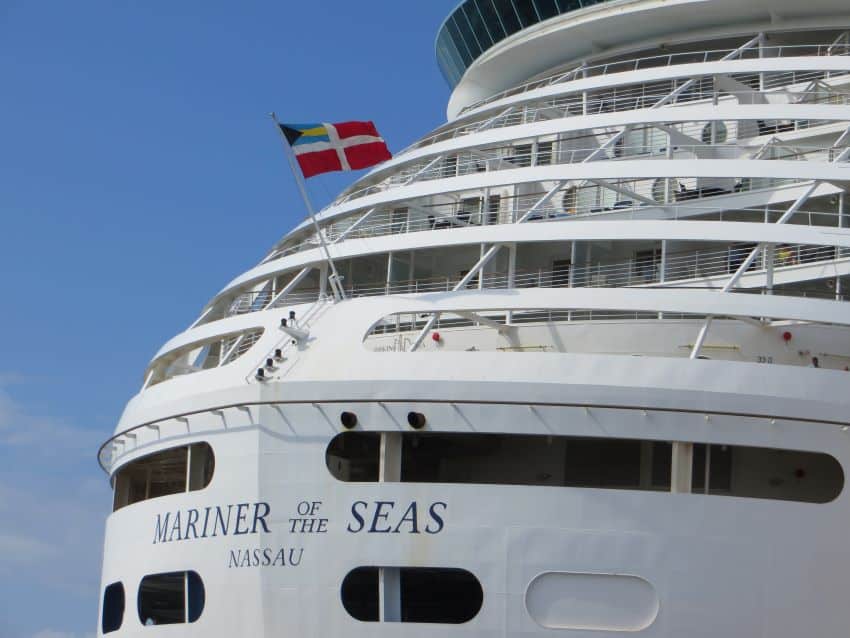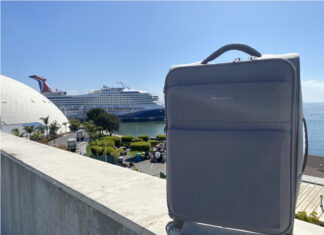More expensive cruises might be in the cards after comments from a major Trump administration official shows they take issue with a major tax benefit cruise lines have used for decades.

In response, cruise line stocks on Wall Street fell sharply as they grappled with a favorable tax treatment potentially coming to an end.
A Powerful Administration Official Calls Out Ship Taxes
The issue started last week when U.S. Secretary of Commerce Howard Lutnick was interviewed on Fox News. During that segment, the cabinet official took aim at cruise ships and shipping, according to LloydsList.com.
“Donald Trump has announced the External Revenue Service and his goal is very simple: to abolish the Internal Revenue Service and let all the outsiders pay,” Lutnick was reported as saying.
“I’ll give you an example: cruise ships. You ever see a cruise ship with an American flag on the back? They have flags of Liberia or Panama. None of them pays taxes. Every supertanker — none of them pays taxes.
“This is going to end under Donald Trump,” said Lutnick. “Those taxes are going to be paid.”
Foreign Cruise Lines See Low Income Taxes in the United States
Cruise ships have for long been flagged in foreign countries. So while many people might think of them as American given that they often sail from the United States, have stocks on U.S. exchanges, and have major headquarters in the United States, cruise lines are often foreign companies with foreign ships.
For example, Carnival Corporation was incorporated in Panama in 1974. In its latest annual report, it says that “In general, under Section 883 of the Internal Revenue Code, certain non-U.S. corporations (such as our North American cruise ship businesses) are not subject to U.S. federal income tax or branch profits tax on U.S. source income derived from, or incidental to, the international operation of a ship or ships.”
Royal Caribbean Group lists its country of incorporation as Liberia, despite having its “principal executive offices” in Miami. In its annual report, the company states that “we and the majority of our ship-operating and vessel-owning subsidiaries are currently exempt from U.S. corporate income tax on U.S. source income from the international operation of ships…”
In fact, Royal Caribbean Group lists $46 million in “income tax expense” for 2024 on net income of nearly $2.9 billion.
Carnival Corporation lists an income tax benefit of $1 million on net income of roughly $1.9 billion in its latest annual report.
Given the favorable tax treatment, it shouldn’t be a surprise that cruise stocks fell hard with the news. Royal Caribbean, Carnival, and Norwegian Cruise Line stocks all dropped about 11% from Wednesday’s close through Friday.
Obviously having to pay more tax would have a direct impact on the cruise companies, but it’s likely that if their favorable tax treatment were ended, it would also impact passengers.
Public companies rarely stand still in the face of higher costs. So should cruise lines be taxed more, it could mean higher prices for passengers (if the taxes were passed on) or cost-cutting to compensate.
Industry Experts Claim “Overreaction”
However, before you start worrying too much about your next cruise being more expensive just know that many experts in the financial world are calling the worry about taxes an overreaction.
″[T]his is probably the tenth time in the last 15 years we have seen a politician (or other D.C. bureaucrat) talk about changing the tax structure of the cruise industry,” wrote analysts led by Steven Wieczynski, according to CNBC. “Each time it was presented, it didn’t get very far.”
″[F]om a tax standpoint the cruise industry is embedded under the cargo industry in the eyes of the Internal Revenue Service,” Stifel Financial wrote. “That would mean the entire cargo industry would have to be turned upside down even before they got to the cruise industry, which is a sliver of the size of the cargo industry.”
As for the cruise industry themselves, they say they pay billions in taxes in the United States in the course of their business.
“Cruise lines pay substantial taxes and fees in the U.S.— to the tune of nearly $2.5 billion, which represents 65% of the total taxes cruise lines pay worldwide, even though only a very small percentage of operations occur in U.S. waters,” said the Cruise Lines International Association, an industry trade group, in a statement reported by CNBC.
Right now there is no telling what might come of the tax situation regarding cruise ships, but it’s something that bears watching.












